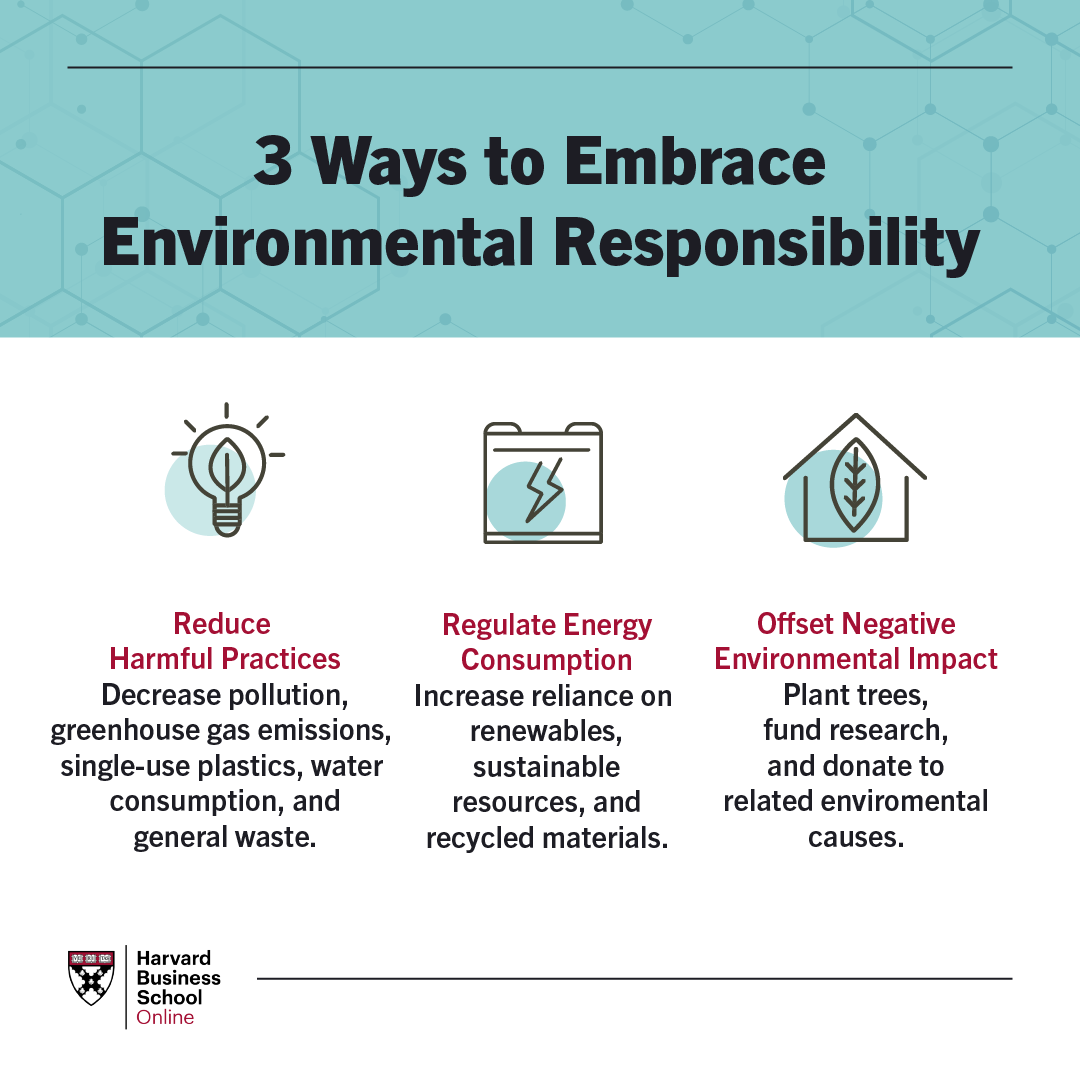As the world continues to grapple with climate change, corporate environmental responsibility has become increasingly important. Companies must take a proactive approach in reducing their damage to our natural environment if we are going to make meaningful progress towards creating a sustainable future for generations to come. But what is corporate environmental responsibility exactly?
In this blog post, we will explore what is corporate environmental responsibility and how companies can reduce their ecological footprint. We’ll also discuss some of the challenges in trying to meet sustainability goals and key points on why corporate environmental responsibility matters now more than ever.
Table of Contents
What is Corporate Environmental Responsibility?
Corporate environmental responsibility is the commitment of businesses to operate in an economically, socially, and environmentally sustainable manner. This means that companies must take into account their impact on the environment when making decisions about production processes, product design, and marketing strategies.
Benefits of Corporate Environmental Responsibility
- Improved public image.
- Cost savings through resource efficiency.
- Increased employee engagement and satisfaction.
- Reduced risk from legal liabilities associated with environmental damage or pollution.
- Access to new markets for green products or services.
- Competitive advantage over competitors who do not practice responsible environmental stewardship.
Examples of Corporate Environmental Responsibility
- Reducing energy consumption by switching to renewable sources such as solar power.
- Investing in water conservation initiatives.
- Sourcing recycled materials for manufacturing processes.
- Minimizing waste through recycling programs.
- Encouraging employees to use public transportation instead of driving private vehicles.
- Providing incentives for employees who carpool or bike to work.
- Offering eco-friendly products or services such as organic food items or biodegradable packaging materials.
- Engaging in carbon offsetting activities like planting trees or investing in clean energy projects.
3 Ways Companies Can Reduce Environmental Damage
1. Reduce Carbon Emissions
Companies can reduce their carbon emissions by investing in renewable energy sources such as solar, wind, and geothermal.
Additionally, companies should look for ways to reduce their reliance on fossil fuels like utilizing electric vehicles or using alternative forms of transportation like rail or bike-sharing programs.
By reducing the amount of carbon dioxide released into the atmosphere from burning fossil fuels, companies can help mitigate climate change and its effects on our environment.
2. Conserve Resources
Companies should also strive to conserve resources whenever possible. This includes implementing strategies that minimize water usage, recycling materials when available, and switching to reusable products instead of disposables.
Businesses should also consider how they use energy in their operations – turning off lights when not needed or switching over to LED lighting systems which are much more efficient than traditional bulbs.
3. Implement Sustainable Business Practices
Companies must take steps to implement sustainable practices throughout their business operations, from manufacturing processes to marketing campaigns and customer service initiatives. This could include:
- Using eco-friendly packaging materials instead of plastic.
- Sourcing raw materials responsibly.
- Providing incentives for employees who adopt green habits at work.
- Creating an environmental policy that outlines a company’s commitment to sustainability.
- Engaging with customers about environmental issues.
- Sponsoring local events focused on conservation efforts.
- Donating money or supplies towards environmental causes.
- Investing in research and development projects aimed at finding new solutions for protecting our planet’s natural resources.
Ultimately these efforts will help ensure that businesses remain competitive while minimizing the damage done to our environment.
Strategies for Achieving Corporate Environmental Responsibility Goals
Set Clear Goals and Objectives
Establishing clear goals and objectives is essential for any company looking to reduce its environmental impact. Companies should start by defining their overall mission, vision, and values related to sustainability. This will help them identify specific areas where they can make a difference in the environment.
For example, if a company’s goal is to reduce carbon emissions by 20%, then it must set measurable targets that are achievable within a certain timeframe.
Additionally, companies should consider how their actions may affect other stakeholders such as employees or customers when setting these goals.
Develop an Action Plan and Timeline
Once the goals have been established, companies need to develop an action plan with detailed steps on how they will achieve those objectives. The action plan should include short-term initiatives that can be implemented quickly as well as long-term strategies that require more time and resources.
Additionally, each step of the plan should have a timeline so progress can be tracked over time. Companies should also review their plans regularly to ensure they remain on track toward achieving their sustainability goals.
Track Progress
Finally, companies need to establish a monitoring system for tracking progress against their sustainability objectives. This could involve collecting data from various sources such as energy consumption reports or customer feedback surveys in order to measure performance against key metrics like carbon emissions reduction or waste diversion rates from landfills.
By having this information readily available at all times, companies can easily identify areas where improvements are needed in order to reach their desired outcomes.
Corporate Environmental Responsibility Challenges
Companies are increasingly recognizing the importance of corporate environmental responsibility and taking steps to reduce their impact on our natural environment. However, there are several challenges that companies face in achieving these goals.
Lack of Awareness and Education on the Issue
One challenge faced by companies is a lack of awareness and education about environmental issues. Many people do not understand how their actions can have an effect on the environment or why it is important to take action. This lack of understanding can make it difficult for companies to convince stakeholders that they are taking meaningful steps toward reducing their environmental footprint.
Limited Resources and Funding for Implementation
Another challenge faced by companies is limited resources and funding for implementation. Companies often struggle with finding enough money or personnel to implement sustainable practices, such as switching from grid to solar power.
Additionally, many businesses may not have access to green technology due to cost constraints, making it difficult for them to transition away from fossil fuels.
Difficulty in Measuring Progress and Results
Finally, measuring progress toward achieving corporate environmental responsibility goals can be challenging because results may not be immediately visible or tangible.
For example, transitioning manufacturing processes to renewable energy sources will likely take time before any significant reductions in emissions are seen across the entire supply chain network. As such, tracking progress over time requires careful monitoring systems which some organizations may find difficult due to resource constraints.
While it can be challenging to achieve corporate environmental responsibility goals, proper planning and increased awareness among stakeholders can help you overcome these difficulties.
 (Source)
(Source)
FAQs About What Is Corporate Environmental Responsibility
What is CSR Environmental Responsibility?
Corporate social responsibility (CSR) is a broad term that describes a company’s efforts to behave in an ethical way. One form of CSR is environmental responsibility, which refers to the company’s belief that it should behave as environmentally friendly as possible.
What is the meaning of environmental responsibility?
The environment is our responsibility. An environmentally aware person, company, city, or country will analyze their environmental impact and make decisions accordingly.
Conclusion
What is corporate environmental responsibility?
Companies can reduce their damage to the environment by implementing strategies such as reducing energy consumption, increasing resource efficiency, and investing in renewable energy sources. By taking steps towards achieving corporate environmental responsibility goals, companies can make a positive impact on our planet while also creating long-term value for their business.
It is time for corporations to take responsibility for their environmental impact. We must all work together to create solutions that will help reduce the negative effects of climate change, preserve our planet’s resources, and ensure a healthy future. Together we have the power to shape a better tomorrow – let us act now!
{“@context”:”https:\/\/schema.org”,”@type”:”FAQPage”,”mainEntity”:[{“@type”:”Question”,”name”:”What is CSR Environmental Responsibility?”,”acceptedAnswer”:{“@type”:”Answer”,”text”:”
Corporate social responsibility (CSR) is a broad term that describes a company’s efforts to behave in an ethical way. One form of CSR is environmental responsibility, which refers to the company\u2019s belief that it should behave as environmentally friendly as possible. “}},{“@type”:”Question”,”name”:”What is the meaning of environmental responsibility?”,”acceptedAnswer”:{“@type”:”Answer”,”text”:”
The environment is our responsibility. An environmentally aware person, company, city, or country will analyze their environmental impact and make decisions accordingly. “}}]}





